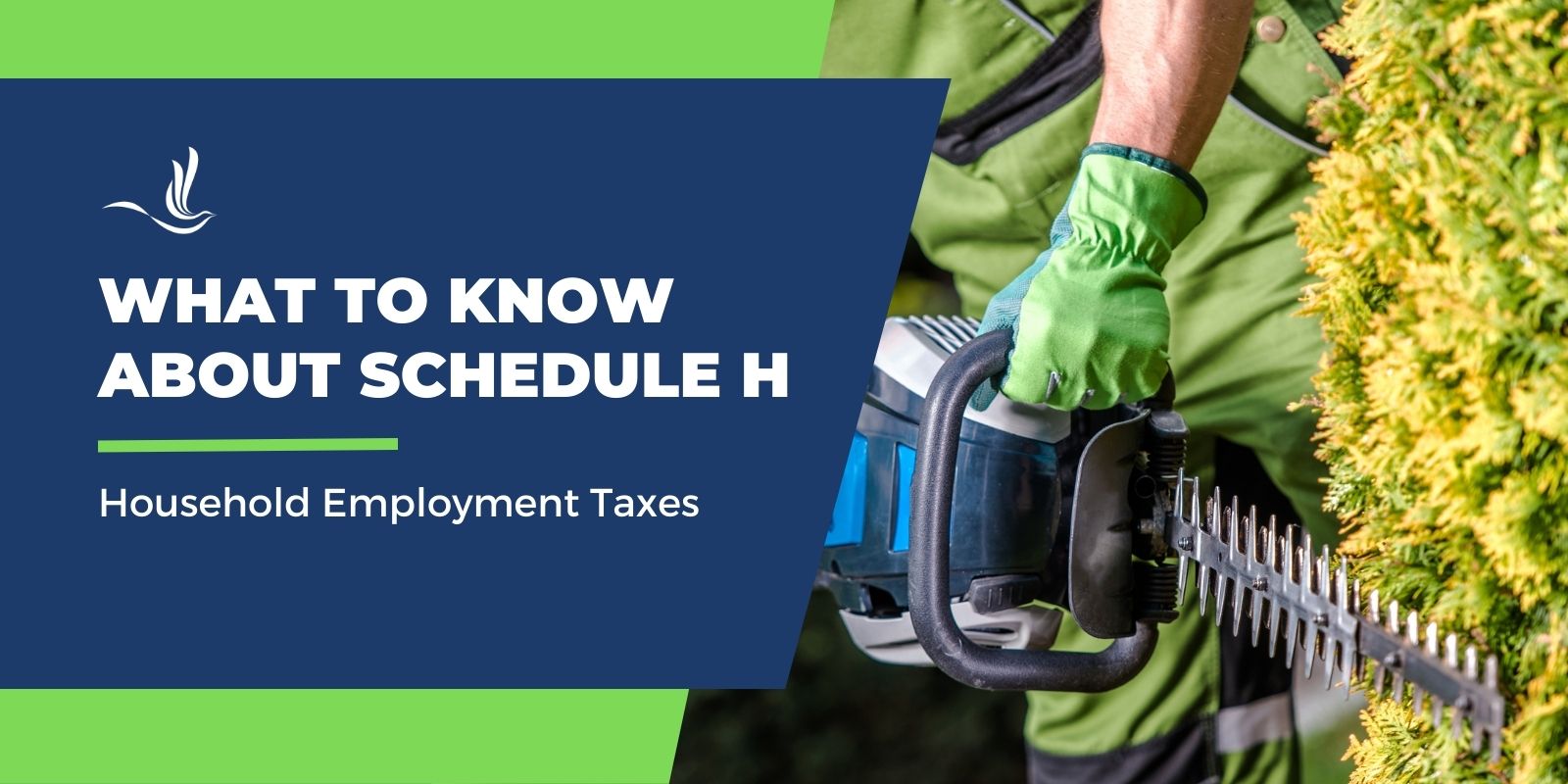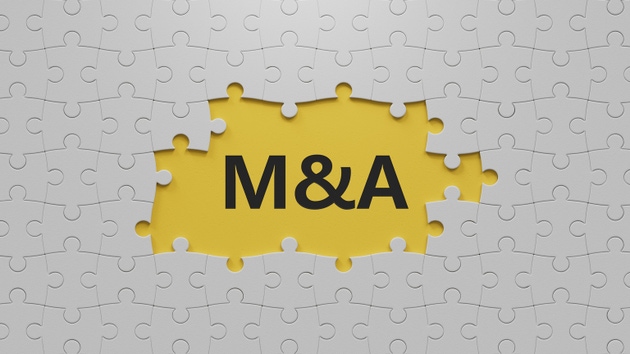Key Takeaways:
Schedule H is used to report household employment taxes for workers like nannies, housekeepers, or caregivers.
You must file Schedule H if you paid a household employee $2,700+ in 2024 ($2,800+ in 2025) or withheld federal income tax.
Household employers are responsible for Social Security, Medicare (FICA), and Federal Unemployment (FUTA) taxes.
Misclassifying workers or failing to file Schedule H can result in penalties, interest, or IRS audits.
Wages reported on Schedule H may qualify for tax credits like the Child and Dependent Care Credit.
Consult a tax professional to ensure you’re meeting all IRS requirements when hiring household employees.
Hiring someone to help around the house, like a nanny, housekeeper, or caregiver, comes with more responsibility than just agreeing on an hourly wage. If you pay a household employee over a certain amount, the IRS expects you to handle payroll taxes like an actual employer. That’s where Schedule H comes in. In this guide, we’ll explain everything you need to know about Schedule H: Household Employment Taxes, including who needs to file it, what taxes apply, and how to stay compliant.
What is Schedule H?
Schedule H is a supplemental IRS form used by individuals who hire household employees and need to report employment taxes. Rather than filing business payroll returns, household employers use Schedule H to report:
Social Security and Medicare taxes (FICA)
Federal Unemployment Tax (FUTA)
Any withheld federal income tax
This form is attached to the employer’s personal tax return (Form 1040, 1040-SR, or 1040-NR) and is due by the annual tax deadline.
Why It Matters
Household workers are considered employees under IRS rules – not independent contractors. That means you, as the employer, are responsible for calculating and paying the appropriate employment taxes, even if your “business” is just your home. Failing to file Schedule H can result in penalties, interest, or even an audit. But with the right tools and knowledge, it’s manageable and legal.
Who Needs to File Schedule H?
You must file Schedule H if all the following apply:
You paid any one household employee cash wages totaling $2,700 or more in 2024 or $2,800 in 2025
The employee is not an independent contractor or from an agency that handles employment taxes.
The work was performed in or around your private home.
You’ll also need to file if you withheld any federal income tax from your household employee’s paycheck, even if you paid them less than the wage threshold.
Who Doesn’t Need to File?
You don’t need to file Schedule H if:
The worker was a self-employed individual (e.g., landscapers who use their own equipment and set their own schedule).
You hired a company or agency that manages payroll and employment (e.g., a professional cleaning service).
The worker earned less than the wage threshold and you didn’t withhold any taxes.
Who Qualifies as a Household Employee?
According to the IRS, a household employee is someone who performs domestic work in or around your private residence and you control what work is done and how it is done. This includes behavioral, financial, and relational control, similar to the rules for classifying employees in a business.
Examples of Household Employees
Nannies and babysitters (if working regularly)
Senior caregivers or aides (not provided through an agency)
Housekeepers and maids
Private chefs or cooks
Drivers or chauffeurs
For example, if you hire a nanny to care for your child 30 hours a week and you set their schedule and job duties, that person is a household employee. If you occasionally use a babysitter who sets their own rates and hours, they may be considered self-employed.
When You’re Required to Pay Household Employment Taxes
There are two key thresholds that trigger tax obligations:
Social Security and Medicare Taxes (FICA): If you pay $2,700 or more in cash wages to a household employee in 2024 ($2,800 in 2025), you must pay both the employer and employee portions of Social Security and Medicare taxes.
Federal Unemployment Tax (FUTA): If you paid $1,000 or more in any calendar quarter during the year to any household employee, you are also required to pay FUTA.
These thresholds are cumulative per household employee. Paying $900 per month to a housekeeper would put you over both limits in just over three months.
Types of Taxes Owed
When Schedule H is required, you may be responsible for the following taxes:
Social Security and Medicare (FICA): Equal to 15.3% of the employee’s wages. You can pay both the employer and employee portions yourself or withhold the employee share from their pay.
Federal Unemployment Tax (FUTA): Generally 6% on the first $7,000 of wages. This can be reduced by state unemployment taxes paid.
Federal Income Tax Withholding (Optional): You are not required to withhold federal income tax unless your employee requests it and you agree. If withheld, it must be reported on Schedule H.
How to Fill Out Schedule H
Part I – Social Security, Medicare, and Income Tax Withholding: You’ll report the wages paid to each employee, calculate both employer and employee portions of FICA taxes, and report any federal income tax you withheld.
Part II – Federal Unemployment (FUTA) Tax: This section covers FUTA taxes, including reductions for state unemployment tax paid.
Part III – Total Household Employment Taxes: Add up all tax amounts from Parts I and II and include it on your Form 1040, Schedule 2.
Part IV – Additional Information: Includes yes/no questions about compliance with state unemployment programs and prior tax filing.
Common Mistakes to Avoid
Misclassifying an employee as an independent contractor
Forgetting to apply the wage threshold properly
Failing to obtain an Employer Identification Number (EIN)
Not keeping adequate records
How and When to Pay Household Employment Taxes
Withholding and Payment Responsibilities
FICA: You can choose to withhold the employee share (7.65%) from each paycheck or pay the entire 15.3% yourself.
FUTA: Entirely employer-paid.
Federal Income Tax: Withheld only if agreed upon with the employee.
When to File and Pay
Schedule H is filed annually with your Form 1040.
Taxes can be paid throughout the year using estimated tax payments (Form 1040-ES) or by increasing your withholding from a W-2 job to cover household tax obligations.
Important: If you don’t pay quarterly, you could face underpayment penalties when filing your return.
Penalties for Not Filing or Paying
The IRS may impose the following penalties if you fail to file Schedule H or pay the correct taxes:
Failure-to-file penalty: Typically 5% of the unpaid tax per month (up to 25%)
Failure-to-pay penalty: 0.5% of the unpaid tax per month
Interest: Accrued daily on unpaid taxes
If you incorrectly treat your employee as an independent contractor (and file a 1099 instead of a W-2), you could be liable for the entire FICA tax burden, along with additional fines and penalties.
Available Tax Breaks for Household Employers
Luckily, there are some tax breaks for household employees to help offset costs.
Dependent Care Tax Credit
You may be eligible for the Child and Dependent Care Credit if:
The employee cared for a child under age 13, a disabled spouse, or another qualifying person
You paid for care so you could work or look for work
You have earned income
To claim the credit, you’ll need your employee’s name, address, and Social Security number. Wages reported on Schedule H qualify as eligible expenses for this credit.
Flexible Spending Accounts (FSAs)
If your workplace offers a Dependent Care FSA, you may be able to contribute up to $5,000 tax-free annually and use those funds to pay your household employee. Schedule H wages are generally eligible if they meet IRS criteria.
Frequently Asked Questions
What is a Schedule H for?
Schedule H is an IRS form used by individuals to report household employment taxes for workers like nannies, housekeepers, or caregivers. It’s filed with your personal tax return to report Social Security, Medicare, FUTA, and any withheld federal income tax.
What happens if I don’t file Schedule H?
Failing to file Schedule H when required can lead to IRS penalties, interest on unpaid taxes, and potential audits. You may also owe the full amount of employee and employer payroll taxes.
What are the benefits of Schedule H?
Schedule H keeps you compliant with IRS tax laws and allows you to claim tax benefits like the Child and Dependent Care Credit or use of Dependent Care FSAs for qualifying household employee wages.
What income triggers the nanny tax?
The nanny tax applies if you pay a household employee $2,700 or more in cash wages in 2024 (or $2,800 in 2025). You must then withhold and pay Social Security and Medicare taxes, and possibly FUTA.
Is a cleaning lady a household employee?
A cleaning lady is considered a household employee if you control how and when the work is done and the person is not employed through an agency or operating as an independent business.
Do babysitters pay taxes?
Babysitters may owe self-employment taxes if they work independently, but regular babysitters under your direction may be classified as household employees, making you responsible for filing Schedule H if wage thresholds are met.
Can I pay my nanny cash?
Yes, you can pay your nanny in cash, but you must still report the wages, withhold appropriate taxes, and file Schedule H if you meet the income thresholds for household employment.
Can I pay my mother for babysitting?
You can pay your mother for babysitting, but household employment tax rules usually don’t apply if the caregiver is a family member who is not subject to FICA taxes under IRS exceptions.
Tax Help for Those with Household Employees
Schedule H might seem intimidating at first glance, but it’s a crucial part of being a compliant household employer. If you’re paying someone to work in your home, whether it’s a nanny, housekeeper, or caregiver, it’s your responsibility to withhold, pay, and report taxes accurately. Understanding when Schedule H applies, how to file it, and what your tax obligations are can help you avoid penalties and provide fair compensation to your employee. Consulting a qualified tax professional can help ensure you’re filing Schedule H correctly, claiming the right deductions, and staying compliant with all IRS requirements. Optima Tax Relief is the nation’s leading tax resolution firm with over a decade of experience helping taxpayers.
If You Need Tax Help, Contact Us Today for a Free Consultation


























